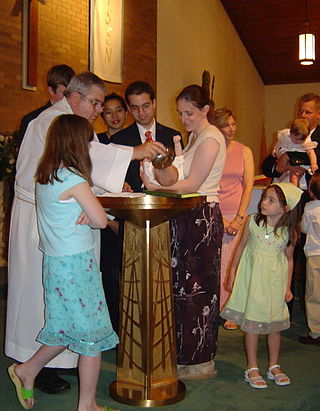Naming customs
It is a common custom among the Shona and Ndebele people to give baby names based on the circumstances of the family or baby at the time of birth. For example, a family that was recently bereaved may name a new baby Munyaradzi, which means comforter, or Tanyaradzwa, which means we have been comforted.
It also common practice to give names that celebrate virtue such as: Nokutenda (with gratitude); Tatenda (we are grateful); Ruramai (be righteous).
There are also names that praise and worship God, such as: Kudakwashe (the Lord's will); Ruvarashe (the Lord's flower); Nokutenda (associated with faith); Vimbainashe (have faith in the Lord).
Traditionally names were also given that express a parent or family circumstances or feelings regarding the neighbourhood and the community they live in. Such names as: Taurayi (speak out, speak up); Nunurai (rescue or save us); Tendai (be grateful); Tamayi (move from here).
Examples of unisex names in Zimbabwe: Anashe, Panashe, Tamiranashe, Kunashe, and Tanyaradzwa.

Infant baptism is the practice of baptizing infants or young children. Infant baptism is also called christening by some faith traditions.

A surname, family name, or last name is the mostly hereditary portion of one's personal name that indicates one's family. It is typically combined with a given name to form the full name of a person.

Chinese names are personal names used by individuals from Greater China and other parts of the Sinophone world. Sometimes the same set of Chinese characters could be chosen as a Chinese name, a Hong Kong name, a Japanese name, a Korean name, a Malaysian Chinese name, or a Vietnamese name, but they would be spelled differently due to their varying historical pronunciation of Chinese characters.

A given name is the part of a personal name that identifies a person, potentially with a middle name as well, and differentiates that person from the other members of a group who have a common surname. The term given name refers to a name usually bestowed at or close to the time of birth, usually by the parents of the newborn. A Christian name is the first name which is given at baptism, in Christian custom.

In denominations of Christianity, a godparent or sponsor is someone who bears witness to a child's baptism (christening) and later is willing to help in their catechesis, as well as their lifelong spiritual formation. In the past, in some countries, the role carried some legal obligations as well as religious responsibilities. In both religious and civil views, a godparent tends to be an individual chosen by the parents to take an interest in the child's upbringing and personal development, to offer mentorship or claim legal guardianship of the child if anything should happen to the parents. A male godparent is a godfather, and a female godparent is a godmother. The child is a godchild.

A unisex name is a given name that is not gender-specific. Unisex names are common in the English-speaking world, especially in the United States. By contrast, some countries have laws preventing unisex names, requiring parents to give their children sex-specific names. In other countries or cultures, social norms oppose such names and transgressions may result in discrimination, ridicule, and psychological abuse.
Personal names in German-speaking Europe consist of one or several given names and a surname. The Vorname is usually gender-specific. A name is usually cited in the "Western order" of "given name, surname". The most common exceptions are alphabetized list of surnames, e.g. "Bach, Johann Sebastian", as well as some official documents and spoken southern German dialects. In most of this, the German conventions parallel the naming conventions in most of Western and Central Europe, including English, Dutch, Italian, and French. There are some vestiges of a patronymic system as they survive in parts of Eastern Europe and Scandinavia, but these do not form part of the official name.

A baby shower is a party centered on gift-giving to celebrate the delivery or expected birth of a child. It is a rite of passage that celebrates through giving gifts and spending time together.

A saint's name, which is usually also a biblical name, is the name of a saint given to individuals at their baptism or confirmation within the Catholic Church, as well as in certain parts of the Eastern Orthodox Church, the Oriental Orthodox Churches, Lutheran Churches and Anglican Communion. It is believed that the saint whose name is chosen will serve as a special patron to protect and guide and will be the heavenly intercessor for the individual who bears his or her name.
A Hawaiian name is a name in the Hawaiian language. Such names are popular not only in Hawaiian families, but also among other residents of Hawaii, and even in the United States mainland among both non-native and native Hawaiians.
Filipinos have various naming customs. They most commonly blend the older Spanish system and Anglo-American conventions, where there is a distinction between the "Christian name" and the "surname". The construct containing several middle names is common to all systems, but the multiple "first" names and only one middle and last name are a result of the blending of American and Spanish naming customs.
The Japanese language makes use of a system of honorific speech, called keishō (敬称), which includes honorific suffixes and prefixes when referring to others in a conversation. Suffixes are often gender-specific at the end of names, while prefixes are attached to the beginning of many nouns. Honorific suffixes also indicate the speaker's level and refer an individual's relationship and are often used alongside other components of Japanese honorific speech.
French names typically consist of one or multiple given names, and a surname. Usually one given name and the surname are used in a person's daily life, with the other given names used mainly in official documents. Middle names, in the English sense, do not exist. Initials are not used to represent second or further given names.
Dutch names consist of one or more given names and a surname. The given name is usually gender-specific.
Ugandan English, also colloquially referred to as Uglish, is the variety of English spoken in Uganda. Aside from Uglish, other colloquial portmanteau words are Uganglish and Ugandlish (2010).

A naming ceremony is a stage at which a person or persons is officially assigned a name. The methods of the practice differ over cultures and religions. The timing at which a name is assigned can vary from some days after birth to several months or many years.
A Yorùbá name is a name that is part of a naming tradition that is primarily used by the Yoruba people and Yoruba language–speaking individuals in Benin, Togo, and Nigeria.
In Lutheranism, the Eucharist refers to the liturgical commemoration of the Last Supper. Lutherans believe in the real presence of Christ in the Eucharist, affirming the doctrine of sacramental union, "in which the body and blood of Christ are truly and substantially present, offered, and received with the bread and wine."
The United States has very few laws governing given names. This freedom has given rise to a wide variety of names and naming trends. Naming traditions play a role in the cohesion and communication within American cultures. Cultural diversity in the U.S. has led to great variations in names and naming traditions and names have been used to express creativity, personality, cultural identity, and values.
Tanyaradzwa is a 2005 Zimbabwean award-winning bilingual drama film written and directed by Tawanda Gunda Mupengo. The film stars Tongayi Chirisa, Kudakwashe Maradzika and Tendai Musoni in the lead roles. The title role is played by the lead actress Kudakwashe Maradzika. The film had its theatrical release in August 2005 and received positive reviews. It also received several awards and nominations.








